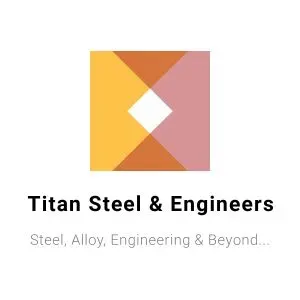Mastering Concrete Tools for Perfecting Your Projects
Concrete work is the backbone of construction, whether you’re building a foundation, a sleek patio, or a towering skyscraper. But to create sharp edges, smooth finishes, and durable structures, you need the right tools.
This blog will explore the essential tools required for concrete work, including hand tools, power tools, and safety equipment. We’ll also share tips on proper maintenance and storage to ensure your tools stand the test of time. By the end of this guide, you’ll have a comprehensive understanding of the key instruments needed to excel in concrete projects.
Why Using the Right Concrete Tools Matters
The saying “the right tool for the job” couldn’t be more relevant in concrete work. Without tools designed for precision, durability, and efficiency, achieving professional results is next to impossible. The right tools not only save time but also enhance safety and reduce worker fatigue.
When you’re pouring, smoothing, shaping, or reinforcing concrete, you need to rely on a curated mix of hand tools, power tools, and protective gear. Here’s everything you’ll need for mastering your next job.
Essential Hand Tools for Concrete Work
Hand tools are indispensable for precision work, finishing touches, and small-scale projects. Below is a list of must-have hand tools every concrete worker should own.
Trowels
Trowels are perhaps the most iconic tools of concrete work. They’re essential for smoothing and spreading concrete to create a refined surface.
- Steel trowels are general-purpose tools for finishing smooth surfaces.
- Magnesium floats are best for leveling and smoothing immediately after pouring.
- Edging trowels add clean edges to slabs for a finished look.
Concrete Edgers and Jointers
Edgers are used to create beveled edges, preventing the concrete from chipping at the borders. Jointers (or groovers) are crucial for cutting control joints into slabs, which help prevent cracking as the concrete cures.
Chisels and Hammers
Every concrete worker should have a masonry hammer and a set of cold chisels to break, chip, or shape hardened concrete with precision. Ideal for repair work, these tools are small yet powerful.
Screeds
Screeds are long, straight tools used to level wet concrete after pouring it into a form. Traditional manual screeds, made of aluminum or magnesium, are perfect for smaller slabs.
Rubber and Steel Floats
Rubber floats are great for applying finish coats of plaster or lifting edges when needed. Meanwhile, steel floats offer a polished finish by creating water-tight surfaces.
Power Tools That Improve Efficiency
For larger projects or jobs requiring speed and power, these high-performance tools are game-changers.
Concrete Mixers
Mixing concrete can be a labor-intensive task. Portable concrete mixers are a huge time-saver, ensuring consistency in the mix while reducing physical effort. They range from handheld varieties to large drum-style mixers for bigger projects.
Power Trowels
For large areas needing a smooth surface, power trowels outperform manual tools. They glide effortlessly over concrete, helping to achieve a polished finish in commercial and industrial applications.
Concrete Saws
Cuts need to be clean and precise, and power tools make this possible.
- Walk-behind saws are excellent for cutting joints in slabs or making structural cuts.
- Handheld circular saws with diamond blades work well for smaller, intricate cuts.
Vibrators
Vibrators are used to consolidate freshly poured concrete, removing air bubbles and ensuring the material settles uniformly. Options include needle vibrators, form vibrators, and larger table vibrators.
Grinders and Polishers
For finishing concrete, you’ll need grinders or polishers to smooth out imperfections and achieve a sleek, finished look. Angle grinders, equipped with discs for grinding or polishing, are versatile additions to any concrete toolkit.
Safety Equipment Every Concrete Worker Needs
Concrete work can pose significant safety risks without the proper gear. Protect yourself with these essential safety tools and equipment.
Gloves
Concrete contains chemicals that can irritate or even burn skin. Invest in chemical-resistant gloves for protection.
Safety Glasses or Goggles
When mixing, cutting, or grinding, safety glasses shield your eyes from debris, dust, and concrete splashes.
Respirators or Masks
Fine concrete dust can pose respiratory hazards. Use respirators with HEPA filters in dusty environments or when cutting concrete.
Steel-Toe Boots
Protect your feet with durable steel-toe boots that can also shield against chemical exposure.
Hard Hats and Hearing Protection
A hard hat guards against falling objects on job sites, while ear protection helps reduce the risk of hearing loss from loud power tools.
Tips for Maintaining and Storing Your Tools
Proper care and storage can extend the life of your tools and ensure they’re always ready for your next project.
Clean Immediately After Use
Concrete hardens quickly, so tools need to be cleaned right after use. Use water and a stiff-bristle brush to remove any concrete residue.
Oil Metal Tools
Apply a light oil coating on steel tools to prevent rust and corrosion, especially for tools that aren’t used daily.
Inspect Tools Regularly
Check for signs of wear and tear. Replace broken handles, dull blades, or malfunctioning power tools as needed to maintain efficiency and safety.
Organize and Store Properly
Store hand tools in a dry toolbox or cabinet, and keep power tools in their cases. Hang larger tools, like screeds or trowels, to prevent unnecessary wear.
Build the Foundation for Success with the Right Tools
Whether you’re new to concrete work or a seasoned professional, using the right tools is essential for achieving top-notch results. From hand tools like trowels and edgers to powerful saws and mixers, a quality toolkit transforms challenges into opportunities.
If you’re eager to perfect your craft and learn more, check out additional resources to expand your knowledge. Investing in high-quality tools and safety equipment will not only improve your results but also refine your skill as a concrete worker.
Start building your toolkit and watch your projects achieve unparalleled professionalism. For more expert tips and gear recommendations, visit our resource hub today!
